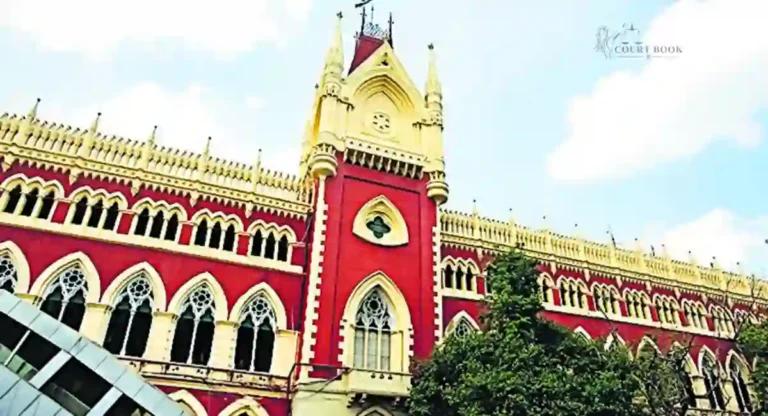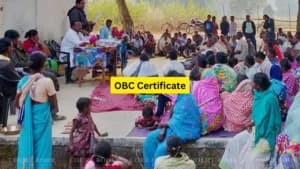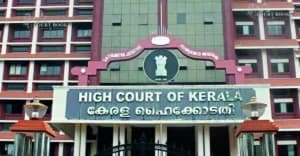The Calcutta High Court has clarified that when an execution petition is withdrawn due to lack of jurisdiction, the benefit under Section 14 of the Limitation Act, 1963, cannot be denied simply because the court order does not explicitly permit refiling. Justice Bibhas Ranjan De delivered the ruling in a case concerning the enforcement of an arbitral award, emphasizing that a clearly stated reason in the withdrawal petition—such as a jurisdictional defect—suffices for invoking Section 14, which excludes time spent in a wrong forum.
The case originated with Radha Krishan Poddar, who had filed Title Execution Case No. 9 of 2002 to enforce an arbitral award dated December 22, 2001. Following his death on August 24, 2014, his legal heirs were substituted in the proceeding by court order dated October 30, 2014. Realizing in 2018 that the Civil Judge did not have jurisdiction, the legal heirs withdrew the execution case and initiated Arbitration Execution Case No. 535 of 2018 before the District Judge at Alipore. The matter was subsequently transferred between the 15th and 6th Courts of the Additional District Judge, Alipore.
During this execution proceeding, the decree holders filed an application under Order 21 Rules 37 and 38 read with Section 151 of the Civil Procedure Code (CPC). The judgment debtors, in turn, filed an objection under Section 47 of the CPC challenging the executability of the decree. However, the Executing Court rejected the objection, holding that it could not go beyond the decree.
The petitioners challenged this decision before the Calcutta High Court. They argued that withdrawal of the execution petition without obtaining explicit permission from the court amounted to a full and final disposal of the proceedings, thereby disqualifying the benefit of Section 14. According to them, knowledge of filing defects is not sufficient justification for such benefit.
In contrast, the decree holders contended that their application under Section 47 CPC was a direct challenge to the appointment of the arbitrator and the enforceability of the decree, which could not be entertained during execution. They maintained that Section 16 of the Arbitration and Conciliation Act, 1996, governs such jurisdictional issues, and the time spent in a court lacking jurisdiction should be excluded as per Section 14 of the Limitation Act.
"The Court noted that the Supreme Court, in Delhi Development Authority v. Durga Construction Co., recognized the difference between delay in initial filing and re-filing. Intent to pursue legal remedies is evident in re-filing scenarios, and such actions should not be treated as abandonment."
It further referred to another decision of the Supreme Court in Vidya Drolia and Others v. Durga Trading Corporation, where it was held that the issue of arbitrability and jurisdiction can arise at multiple stages—before the court under Sections 8 or 11 of the Arbitration Act, before the arbitral tribunal under Section 16, and even at the stage of award enforcement. These are critical safeguards in arbitration proceedings, allowing parties to challenge validity, scope, or enforceability of arbitration agreements.
The High Court emphasized that the decree holder, in paragraph 15 of the withdrawal petition dated September 7, 2018, had specifically mentioned withdrawal due to lack of jurisdiction and the intent to refile before the appropriate forum. The order dated September 29, 2018, while not explicitly granting liberty to refile, did not reject this request either.
"The absence of express liberty in the withdrawal order is not sufficient to deny the benefit under Section 14 of the Limitation Act when the withdrawal was clearly on jurisdictional grounds and the court did not oppose refiling," the Court held.
It also pointed out that a Title Execution Petition cannot be used to execute an arbitral award under the Arbitration Act. Thus, the initial petition filed in 2002 was before an incompetent forum. The subsequent Arbitration Execution Case No. 535 of 2018 was the proper proceeding and the time spent in the earlier case should be excluded from limitation.
Accordingly, the Calcutta High Court dismissed the present petition, upholding the right of the decree holders to proceed with the execution.
Read Also:-Calcutta High Court Seeks West Bengal Government’s Response Over Deocha-Pachami Coal Mining Project
In view of the facts and legal position, the petition is dismissed, the court concluded.
Case Title: Sri Arun Kumar Jindal & Anr. vs. Smt. Rajni Poddar & Ors.
Case Number: C.O. 441 of 2023
Judgment Date: April 29, 2025
Coram: Justice Bibhas Ranjan De
For the Petitioners: Mr. Subhasis Sarkar, Mr. Subrata Bhattacharjee, Mr. Bikramjit Mandal, Mr. Sk. Mustafi Rahaman
For the Opposite Parties: Mr. Chayan Gupta, Mr. Rittick Choudhury, Mr. Shoham Sanyal















